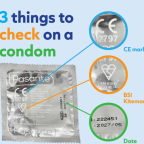Mgen
(Mycoplasma Genitalium)
Mycoplasma Genitalium (Mgen or MG) is a type of bacteria which can cause an STI.
Most people with the infection usually don’t experience symptoms and the STI is not routinely tested for without symptoms present.
Here we will provide information on Mgen, as well as, it’s symptoms and how to get treated.
Mgen (Mycoplasma Genitalium)
Mycoplasma Genitalium (Mgen or MG) is a type of bacteria which can cause an STI.
Most people with the infection usually don’t experience symptoms and the STI is not routinely tested for without symptoms present.
Here we will provide information on Mgen, as well as, it’s symptoms and how to get treated.
Signs and Symptoms
Sometimes people with Mgen don’t have any symptoms – but can still pass on the STI.
If you do show symptoms, they may include:
- Watery discharge from the penis or vagina
- Burning, stinging or pain when peeing
- Raised temperature
People with a vagina can also experience:
- Pain during sex
- Bleeding after sex
- Bleeding between periods
- Stomach or pelvic pain below the belly button
How is it Transmitted?
Mycoplasma Genitalium is spread through unprotected sex or contact with infected genital fluids.
Here are some of the ways you can get it:
- Unprotected vaginal, anal or oral sex
- Your genitals coming into contact with your partner’s genitals (even if there’s no penetration or ejaculation)
- Sharing unwashed sex toys
How to Get Tested
The free, easy and discreet way to discover if you have an STI.
Call our Helpline
Speak to a friendly advisor and get the advice and support you need.
You’re not alone.
There are people who care about you and want to help you through this.
Prevention
You can help prevent the spread of and contracting Mgen by:
- Using a condom every time you have vaginal or anal sex
- Using a condom to cover the penis during oral sex
- Avoid sharing sex toys without washing in-between uses
- Using a dam (a piece of thin, soft plastic or latex) to cover the vagina during oral sex or when rubbing genitals together
Treatment
You might be feeling worried or scared right now, which is understandable, but we want to assure you that Mgen is a treatable STI. It can sometimes be more difficult to treat than other STIs with similar symptoms but there are effective treatments available.
Common antibiotics kill bacteria by damaging the cell walls. However, mycoplasma genitalium bacteria essentially doesn’t have cell walls. This means that it’s more resistant to some antibiotics than other bacteria.
Instead, treatment is typically provided by two classes of non-typical antibiotics: macrolide-type or quinolone antibiotics. These antibiotics work by targeting other parts of the bacteria’s cell, making it easier to kill.
You’ll typically be retested around a month after treatment to ensure the infection has gone. If it hasn’t, your doctor may recommend a different treatment.
FAQs
Mgen (Mycoplasma Genitalium)
Clear answers to common questions
Contacting a sexual health service for the first time may be a little daunting, especially if you’re not keen on talking to someone. So, here are answers to some of the questions we get asked a lot.
Is Mgen serious?
Usually, Mgen is a minor or symptomless illness. However, if you don’t get it treated it can spread and cause more serious problems.
How soon do symptoms appear?
You should start to see symptoms appear within a week but not everyone will show any signs of having the STI. However, it is still possible for you to pass on the infection.
What should I do if I have Mgen?
If you think you may have an STI you should visit your GP or local sexual health clinic, or call our helpline on 0300 003 1212.









